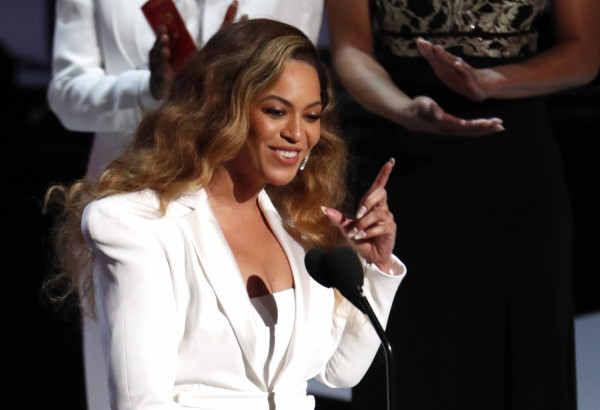Beyoncé Faces Accusations of Skin Bleaching After Olympic Appearance

Beyoncé, the iconic singer and 32-time Grammy winner, found herself at the center of controversy following her appearance at the 2024 Paris Olympics opening ceremony. Her introduction of Team USA, which aired on NBCUniversal, was met with accusations of skin bleaching, sparking a heated debate on social media.
Dressed in a striking white bodysuit emblazoned with "USA," a statement kaftan featuring the Olympic rings, and topped off with a cowboy hat and boots, Beyoncé's look was undeniably attention-grabbing. Complementing her outfit, she sported long, platinum blonde hair, and her entrance, set to a remix of her hit single "Ya Ya," quickly went viral. While many praised her performance, others fixated on her seemingly lighter complexion.
Social media platforms such as X (formerly Twitter) and Instagram buzzed with comments accusing Beyoncé of lightening her skin. One Instagram user bluntly commented, "What in the white woman[?]," while another claimed, "She's all bleach." A third user went as far as to label her a "white girl [wannabe]." The criticism extended to X, where one user questioned, "I JUST saw Beyoncé in the Olympic inauguration. Is she a white performer? Is she ashamed of her roots? Does she want to look like Shakira?"
Despite the negative comments, Beyoncé's fans quickly rallied to her defense, arguing that studio lighting likely contributed to the perceived change in her skin tone. One X user wrote, "That's what kills me because no one can ever name the white woman that Beyoncé is supposedly trying to look like. There are NO white women with these features and this shape." Another fan emphasized the impact of lighting, stating, "2024 and Black people still don't understand how light affects the color of your skin on pictures/videos."
This isn't the first time Beyoncé has faced such accusations. In November 2023, similar claims arose after photos of her at the premiere of her "Renaissance" tour film circulated online. In those images, she also sported long, platinum blonde locks and wore a dazzling metallic gown by Versace, matching opera gloves, and silver pumps. Critics suggested she was trying to look like a white woman.
Beyoncé's mother, Tina Knowles, responded to the accusations, calling them "racist" and defending her daughter's natural beauty. "Beyoncé is a brown skin girl sometimes more or less light. A brown skin girl it's [sic] more than a skin color. It's a culture, a pride, a strength," Knowles wrote on social media. She included a montage of videos showing Beyoncé's skin tone appearing in different shades over the years. Knowles continued, "She does a film, called the ['Renaissance'], where the whole theme is silver with silver hair, a silver carpet, and suggested silver attire and you bozos decide that she's trying to be a white woman and is bleaching her skin? ... How sad is it that some of her own people continue the stupid narrative with hate and jealousy[?]"
The debate over Beyoncé's skin tone highlights the broader issues of colorism and societal beauty standards. While some fans and critics continue to scrutinize her appearance, others celebrate her as a symbol of cultural pride and resilience. As Beyoncé continues to break barriers and redefine the music industry, her influence and the discussions surrounding her remain as powerful as ever.
In the face of criticism, Beyoncé's supporters underscore her contributions to music and culture, reminding detractors of her enduring legacy. Her recent Olympic appearance, despite the controversy, serves as a testament to her lasting impact and the fervent reactions she evokes, both positive and negative.













